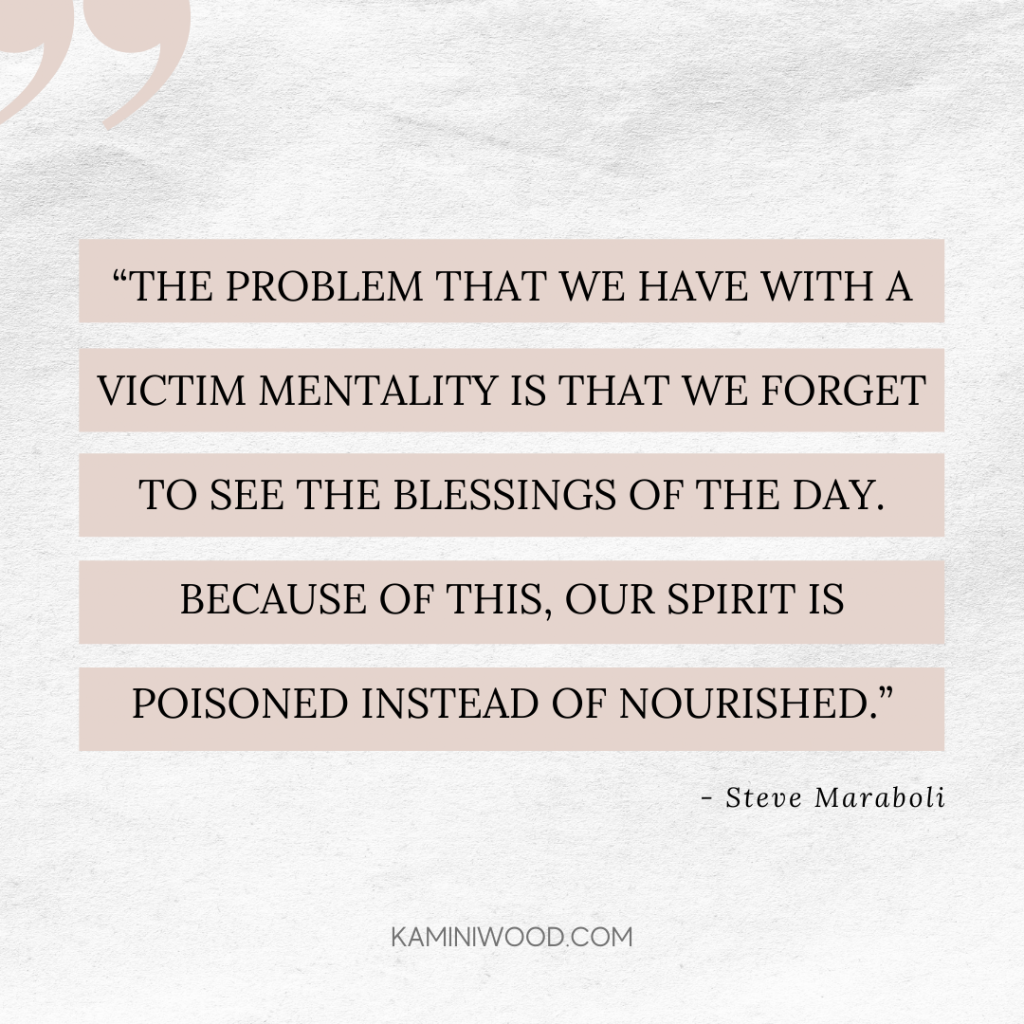Victim Mentality: Three Steps to Stop Being a Victim

Do you feel that you have very little, if any, control over your life?
- Everything is always against you.
- You always get the worst jobs.
- People take advantage of you.
- No one really respects and appreciates you.
- Things never turn out good for you.
- You feel like you’ll never reach the happiness and success you deserve.
You feel like a victim, and you are accepting this victim mindset as the only possible option.
What is a Victim Mentality?
The term victim mentality refers to an acquired self-sabotaging mindset typically formed by a person’s traumatic past. Such a perspective serves to get attention and avoid responsibility for one’s own thoughts and actions. As a result, it can potentially sabotage your life, career, and relationships. Also, a victim mentality can cause significant emotional distress or even lead to mental illness.
People who play the victim have an external locus of control. These people tend to believe that they don’t have control over their lives, feeling helpless, pessimistic, angry, and afraid.
They may blame other people and circumstances for their own failures and mistakes or even believe that others do things to hurt them intentionally.
Individuals who struggle with a victim mentality don’t take accountability for their lives. They never attribute successes and failures to their actions. At the same time, these people take very little or no effort to change or improve their lives.
When victimizing yourself, you feel powerless to change things in your life, always looking for attention, but never actually asking for what you need or want.
A victim mindset revolves around negative thinking patterns and cognitive distortions such as:
- Catastrophizing – “They’ll never hire me.” “I’ll never pass this exam.”
- Discounting the positive – “I didn’t do anything to deserve this promotion; it was pure luck.”
- Mental filtering – “I never do anything right. I am a failure.”
Such faulty thinking patterns increase feelings of helplessness and hopelessness, leading to anxiety, depression, behavioral substance abuse, and other mental health and behavioral challenges.
How Self-Victimization Develops
A victim mentality is an acquired personality trait that often develops due to a person’s early experiences.
Most people who play the victim had a traumatic childhood. They were often raised in dysfunctional families with codependent attachment or victimized through psychological, emotional, physical, or sexual abuse.
What’s The Difference Between Victim Mentality And Victim Complex?
Although the terms victim mentality and victim complex often get confused and are closely related, there is a difference.
A victim mentality is a more common issue, as many people experience it at some point in their lives. We all may sometimes feel like things in our lives are out of control. However, the victim mentality is generally not long-lasting.
In contrast, the victim complex is far more extreme and pathological. The victim complex represents an internalized and deeply rooted mindset that defines a person’s attitude and outlook on life, often leading to mental illness, relationship problems, and other difficulties.
People with the victim complex tend to blame others or life circumstances for their feelings, mistakes, and failures. They believe that others are deliberately trying to hurt them and cannot handle constructive criticism.
Also, individuals with the victim complex always complain about something, even when things in their lives go well. They expect compassion from others and feel upset when they don’t receive it. As a result, they always put themselves down, feeling helpless to change their situation.
Choosing To Be A Victim
A victim mentality is something we learn and acquire. However, no one was born feeling like a victim. In other words, we can choose to break out of such a mindset and stop victimizing ourselves.

Why Does Someone Choose To Be A Victim Then?
People who play the victim continue with this toxic behavior pattern because it brings them some benefits.
One of the significant advantages of choosing to be a victim is that you don’t have to take responsibility for anything. People who victimize themselves believe that they don’t have control over their lives, so they never try changing their circumstances.
Furthermore, their helpless outlook gains them attention as other people feel sorry for them. In addition, others may never criticize people who play the victim to avoid upsetting them.
In other words, playing a victim gives you a lot of power, enabling you to avoid responsibility, get out of trouble, and manipulate other people.
How to Not Be a Victim: Three Steps
Regardless of its perks, choosing to be a victim is not healthy. Here are the three tips on how to break off the toxic mindset and stop victimizing yourself.
1. Start Practicing Accountability
The most crucial step towards breaking off the victim mindset is learning to accept responsibility for your thoughts, feelings, and actions. To start with, stop blaming others for how you feel or what you do.
For example, instead of saying, “You make me feel so sad,” say something like, “I feel so sad when you treat me this way.”
Replacing the word “you” with “I” will help you recognize and acknowledge responsibility for your own feelings and behaviors.

2. Nurture Self-Compassion
Self-compassion means treating yourself with sympathy and kindness. Being compassionate towards yourself can help you understand why you have chosen to be a victim. It can help you forgive and self-forgive and finally come to terms with your past traumatic experiences.
3. Start Your Inner Child Healing
An inner child can be described as our way of being. Your inner child represents a sum of your past experiences and childhood memories that significantly shaped your personality.
Therefore, if you were a victim of abuse or grew up in a dysfunctional family, your inner child can be a source of psychological distress, determining how you relate to yourself and others. So, healing your inner child can help you work through your past traumatic experiences and break away from the victim mindset.
Coaching can be a safe environment to start your inner child work. A skilled psychotherapist can help you explore your core beliefs, address unmet needs and early attachment wounds, and begin developing self-compassion. Want to discuss more, book a time to speak www.chatwithkamini.com



